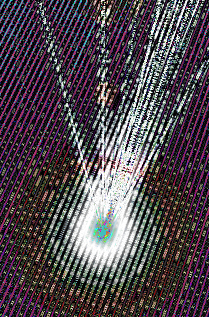Next-gen systems spied
 A recent tech conference saw an entire panel of Nobel Laureates speaking on the rise of quantum computing.
A recent tech conference saw an entire panel of Nobel Laureates speaking on the rise of quantum computing.
The panel discussion with the Nobel Laureates Serge Haroche, Gerardus 't Hooft, William Phillips and David Wineland discussed the notion that quantum technology will define the future of the 21st century.
After the talk, internationally-renowned quantum physicist Professor Rainer Blatt spoke about what we can expect in the relatively short-term, as the world faces the “second quantum revolution”.
Blatt has no doubt: quantum technologies are driving forward a technological revolution, the future impact of which is still unclear.
He says nothing stands in the way of these technologies becoming the engine of innovations in science, economics and society in the 21st century.
The first quantum revolution gave the world developments like computer chips, lasers, magnetic resonance imaging and modern communications technology.
Now, researchers are talking about the advent of a second quantum revolution, Professor Blatt said.
“This second quantum revolution, as it is sometimes called, takes advantage of the phenomenon of entanglement,” he told reporters.
“The nature of entanglement, which has been known for 85 years, has only been experimentally investigated in the past four decades.
“Today, entanglement forms the basis for many new potential applications such as quantum communications, quantum metrology and quantum computing. The second quantum revolution is generally understood to be the realisation of these new possibilities.”
Professor Blatt was asked how long will it take for the second quantum revolution to produce any real products.
“The use of entanglement for matter - not just for photons - will transform metrology by providing more sensitive and faster-responding sensors,” he said.
“Quantum processors will initially be used to solve a few special problems, but in the more distant future also for universal calculations.
“There's actually no discernible obstacle to realizing quantum technologies. Increasingly complex systems are being devised. This includes the development and use of new, previously unavailable technologies and methods. As quantum technologies become more widely available, ideas for their use and applications will rapidly follow.”
One of the leading minds in the field said the impacts would be immense.
“It's difficult to predict how far-reaching the impact on society and economics will be,” Blatt said.
“Changes brought about by the development of the laser were similarly unpredictable. In the early 1960s, the laser was still seen as a solution to an unknown problem.
“Today, just over fifty years later, lasers have become an indispensable part of our lives. I expect quantum technologies to develop along similar lines.”
More information on the 66th Lindau Nobel Laureate’s Meeting is available here.







 Print
Print